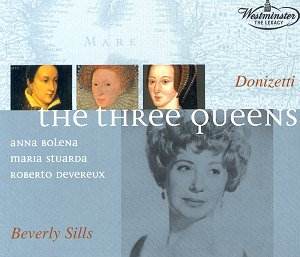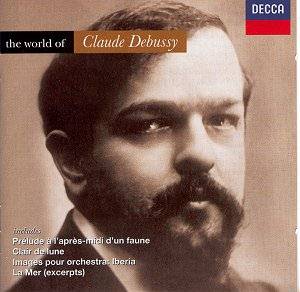 Composer: Gaetano Donizetti
Composer: Gaetano Donizetti
Works: Anna Bolena, Maria Stuarda, Roberto Devereux
Performers: Anna Bolena – Beverly Sills (soprano), Paul Plishka (bass), Shirley Verrett (soprano), Stuart Burrows (tenor); Maria Stuarda – Beverly Sills (soprano), Eileen Farrell (soprano), Stuart Burrows (tenor), Louis Quilico (baritone); Roberto Devereux – Beverly Sills (soprano), Peter Glossop (baritone), Robert Ilosfalvy (tenor)
Recording: London, EMI Studios, 1972-1971; Digitally remastered 2001
Label: Decca
The operatic oeuvre of Gaetano Donizetti, particularly his trio of Tudor queens—Anna Bolena, Maria Stuarda, and Roberto Devereux—stands as a cornerstone of the bel canto repertoire. These works, steeped in historical narrative yet liberated by Donizetti’s lyrical imagination, showcase the composer’s remarkable ability to intertwine intricate character studies with the emotional depth of his characters. The present collection, featuring Beverly Sills in the lead roles, is a testament to the enduring power of these operas, encapsulating not only their musical brilliance but also the dramatic intricacies that have captivated audiences for generations.
The performance of Anna Bolena, Donizetti’s 31st opera, reveals a nuanced understanding of the tragic figure at its center. Beverly Sills, in her portrayal of the titular character, delivers an extraordinary performance marked by her pristine diction and stunning vocal agility. Her ability to convey the psychological turmoil of Anna is particularly evident in the aria “S’ei t’abbore, io t’amo ancora,” where Sills masterfully balances dramatic intensity with lyrical beauty. The orchestral accompaniment by the London Symphony Orchestra under Julius Rudel is equally commendable; the orchestra offers a rich tapestry of sound that supports rather than overwhelms the vocal lines, creating a harmonious balance throughout. The quintet in Act I, a moment of exquisite interplay, highlights both the ensemble’s cohesion and the individual strengths of the soloists.
Transitioning to Maria Stuarda, one observes a stark contrast in dramatic tension between the two queens. Here, Sills again shines, delivering her lines with an emotional weight that reflects Mary’s tragic plight. Eileen Farrell’s portrayal of Elisabetta introduces a formidable vocal presence, particularly in their duet, where the interplay of their distinct timbres creates a palpable tension. The Royal Philharmonic Orchestra, conducted by Aldo Ceccato, provides a lush and sonorous backdrop, particularly evident in the overture, which is executed with a stately grace that foreshadows the emotional turmoil to come. The precision in orchestral phrasing coupled with the singers’ nuanced performances results in a riveting dramatic experience.
Roberto Devereux, the final opera in this trilogy, showcases Donizetti at a particularly vulnerable moment in his life, infusing the music with an emotional depth that resonates profoundly. The performance features Sills again, whose vocal versatility is on full display. Her ability to navigate the demanding vocal lines with both power and delicacy is particularly striking in the final act, where her portrayal of grief and defiance culminates in a series of poignant moments. The Ambrosian Opera Chorus and the Royal Philharmonic Orchestra, under Charles Mackerras, contribute to a full-bodied sound that captures the operatic grandeur while allowing for delicate nuances in the more intimate moments. However, some of the supporting soloists occasionally struggle to match Sills’ commanding presence, particularly in their dynamic range, which at times leans too heavily on fortissimo, sacrificing the subtlety that defines bel canto singing.
The remastering of these recordings has ensured that the sonic quality remains robust, with a clarity that enhances the listener’s experience. While there are occasional traces of hiss, they do not detract from the overall impact of the performances. The accompanying booklets provide insightful context, enriching the listening experience with historical background and detailed synopses that illuminate the operas’ complexities.
This collection of Donizetti’s Tudor operas represents a significant contribution to the catalog of recorded opera. The performances, particularly those by Beverly Sills, encapsulate the emotional and musical richness of these works, offering both seasoned aficionados and new listeners alike a compelling interpretation. The combination of stellar soloists and a responsive orchestra makes this set not only a vital addition to any opera lover’s library but also a reminder of Donizetti’s enduring genius as a composer who deftly navigated the confluence of history and heartfelt expression.

